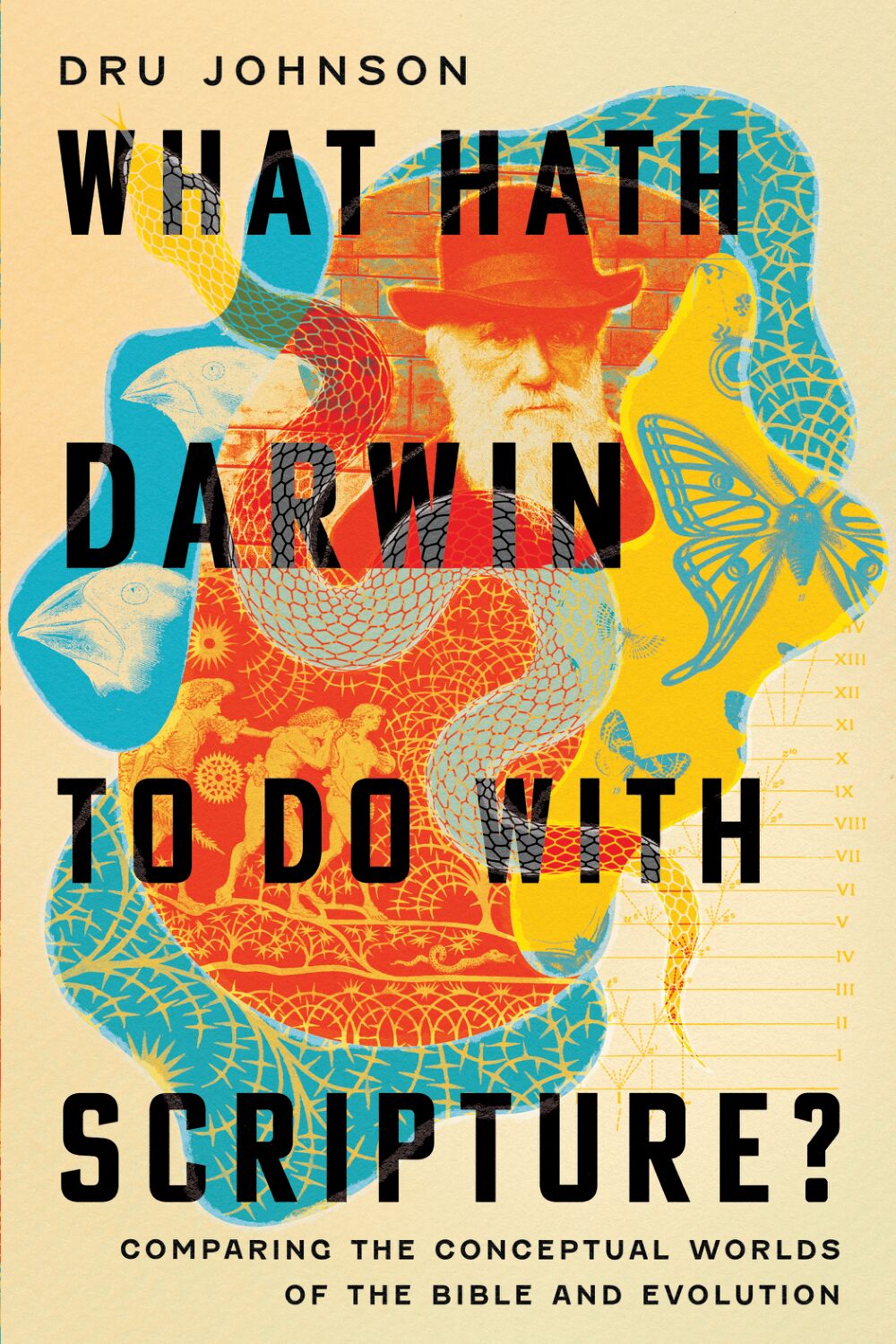A Conversation on Evolutionary Science and Scripture with Dru Johnson
The book of Genesis might be the most Darwinian text of the ancient world. Can the ideas of Scripture and evolutionary science be mutually illuminating? In his book What Hath Darwin to Do with Scripture? biblical scholar Dru Johnson calls us beyond creation-versus-evolution debates to explore the continuities and discontinuities between biblical themes and those of Darwin and modern science.
You're a biblical scholar, but of a sort different from most others. How would you sum up your approach to the study of the Old Testament?
Dru Johnson: I'm most interested in how the biblical authors conceptualize the world, especially how they build their conceptual schemes into their audiences. They do this through texts, of course, but also by tugging upon the frames of real life and the prescriptions of Israelite ritual to do some of that intellectual work. Because theirs is a rich intellectual tradition, it's worth putting in conversation with other intellectual traditions. That's what excites me about the biblical literature and gets foregrounded in my work.
The split among Christians over Darwinism and evolution has been so deeply divisive over the last century. What are the fresh ideas we need most?
DJ: Once we notice that the biblical authors were also intensely interested in the pressures that give rise to natural selection, it's hard to turn that switch off. They talk about the concepts of fittedness, scarcity, and sexual propagation incessantly in Genesis and continue to weave this discussion of selection throughout the biblical canon. Once I grasped that, I was dissatisfied with all the attempts to reconcile evolutionary science and Scripture by making apples-to-oranges comparisons, a mentality that writes off the Bible as being disjointed from the topics of science.
What would Darwin think about your book if you could sit down to talk it over with him?
DJ: I think he'd need to experience the same paradigm shift most readers will, changing his ideas about the nature of the task of biblical literature. Most of his references to Scripture treat science and religion as if they are doing two completely different things: "science tells us how but religion tells us why." I hear many well-meaning science popularizers (and Christians) saying the same thing today. But if Darwin could shift make the shift, I think he'd be fascinated. He might still see that his and the biblical authors' ideas about natural selection are sometimes in conflict (as I do), but he would do so in an apples-to-apples comparison. The points of overlap might even be gratifying to him.
The theologian Andrew Torrance has described your book as "at once both cautious and creative." What's most cautious, and what's most creative about it?
DJ: I rely heavily on scientists themselves to describe the field and their own internal debates, and I also had working scientists review the manuscript. I'm trying to express what I've studied in these two conceptual worlds, and I assume I can't have gotten every detail perfect, so I await constructive criticism from the relevant guilds. This book is meant to start a conversation. But because I'm not pretending to be an expert, I am able to go wide and think creatively. I also presume Torrance is referring to my discussions of such "out there" topics as psychedelics, sex in the eschaton, and life extension.
Anything especially surprising you came across while working on the book?
DJ: Definitely! The dark side of sexual propagation in evolutionary theories was really tough to read and write about. I thought the chapter on sex would be more enjoyable, but it just ended up depressing me. I was a bit shocked to read that biological sex differentiation is so embarrassing for evolution and yet so central for Scripture. If evolution had gone more successfully, sexual reproduction might have been an aberration rather than the vast majority (roughly 99% of animals on earth reproduce sexually). Sexual reproduction is costly, fatal even, and creates all kinds of problems for multiplying one's offspring. So the fact that God's image is made "male and female" is a radical claim from the conceptual world of Scripture.
What kind of questions do your students ask when you're teaching on this topic?
DJ: I tend to think the modernism/postmodernism debates really ended in the 1990s and my students are caught up in what some are calling "hypermodernism." It's no longer about what is absolutely true and who has the power to shape the narrative. Rather, they are confronted with tidal waves of perspectives and data, a morass so thick that they seem to crave a guide who will help them navigate through all the information more than "the truth." In some ways, this is much closer to the biblical view, that truth always entails guidance over time in order to see it.
Join IVP Academic's Email List and Discover More Books on Origins, Creation, & Evolution
About the Author
This interview originally appeared in the IVP Academic catalog. Sign up to receive the catalog to be the first to discover new academic books and author interviews.





